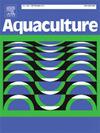Working the ground game: How Maine shellfish and seaweed farmers are building social license to operate
IF 3.9
1区 农林科学
Q1 FISHERIES
引用次数: 0
Abstract
Over the past decade, the aquaculture industry in Maine has experienced steady growth. With this growth, farmers are facing new challenges–one particularly complicated challenge being social acceptance. As a result, Maine farmers have become hyper aware of their social license to operate and are actively working to gain their community's trust using a wide range of practices. To date, most of the research investigating social license in aquaculture focuses on large-scale finfish farms, as they are often more environmentally and socially impactful and draw more public attention. Through in-depth interviews with 30 Maine shellfish and seaweed farmers, this study demonstrates that social license to operate is also relevant for small to medium scale, low-trophic farms. Further, this study outlines farmer's social license work, a term that describes the various deliberate practices undertaken by businesses to obtain and maintain their social license. From proactive, voluntary outreach, to responsible operating practices, to offering tangible community benefits, farmers in Maine are crafting businesses that align with local values in an attempt to build genuine community support. Social license practices are deeply integrated into their businesses and this benefits both the farm and the broader community.
开展地面游戏:缅因州贝类和海藻养殖者如何建立社会经营许可证
在过去十年中,缅因州的水产养殖业经历了稳步增长。随着增长,养殖户们也面临着新的挑战,其中一个尤为复杂的挑战就是社会认可度。因此,缅因州的养殖户开始高度关注其经营的社会许可,并积极努力通过各种实践来赢得社区的信任。迄今为止,大多数调查水产养殖社会许可的研究都集中在大型有鳍鱼类养殖场,因为它们通常对环境和社会的影响更大,也更受公众关注。本研究通过对 30 位缅因州贝类和海藻养殖户的深入访谈,证明社会经营许可也适用于中小规模的低营养型养殖场。此外,本研究还概述了养殖户的社会许可工作,这一术语描述了企业为获得和维持其社会许可而采取的各种有意识的做法。从主动、自愿的外联活动,到负责任的经营实践,再到提供切实的社区利益,缅因州的农场主们正在精心打造符合当地价值观的企业,试图建立真正的社区支持。社会许可实践已深深融入他们的企业,这既有利于农场,也有利于更广泛的社区。
本文章由计算机程序翻译,如有差异,请以英文原文为准。
求助全文
约1分钟内获得全文
求助全文
来源期刊

Aquaculture
农林科学-海洋与淡水生物学
CiteScore
8.60
自引率
17.80%
发文量
1246
审稿时长
56 days
期刊介绍:
Aquaculture is an international journal for the exploration, improvement and management of all freshwater and marine food resources. It publishes novel and innovative research of world-wide interest on farming of aquatic organisms, which includes finfish, mollusks, crustaceans and aquatic plants for human consumption. Research on ornamentals is not a focus of the Journal. Aquaculture only publishes papers with a clear relevance to improving aquaculture practices or a potential application.
 求助内容:
求助内容: 应助结果提醒方式:
应助结果提醒方式:


